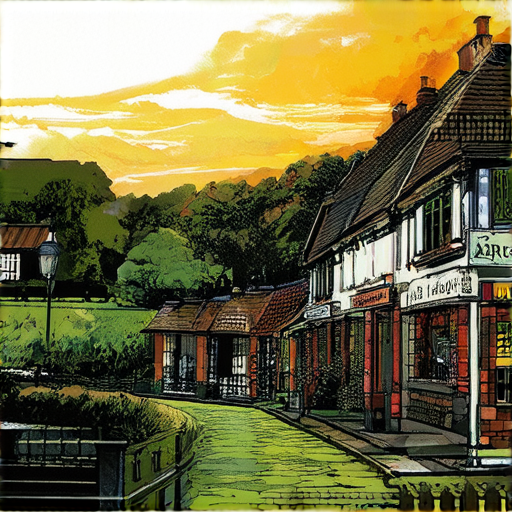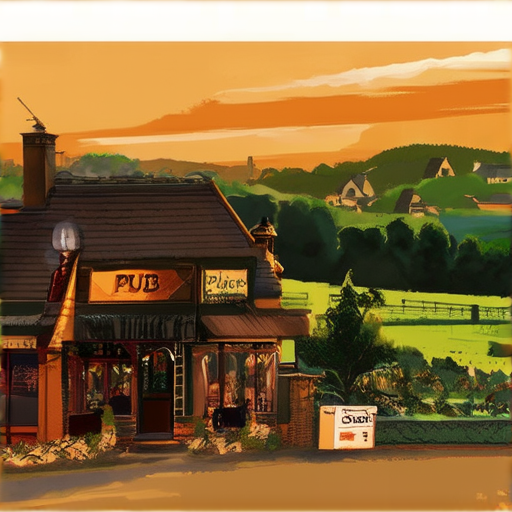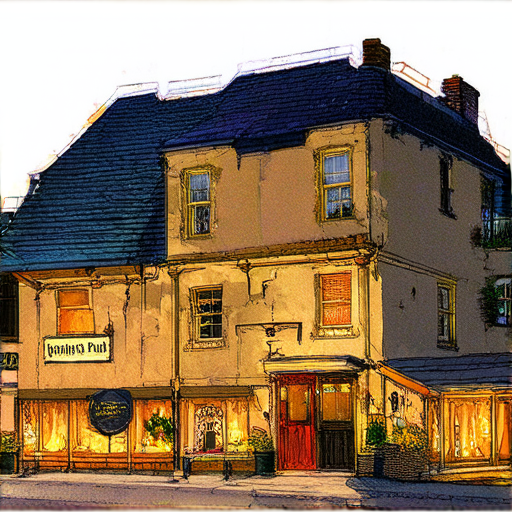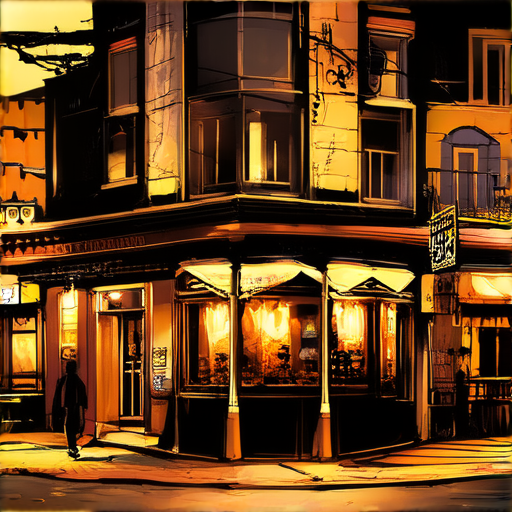For centuries, pubs have been an integral part of community life, serving as gathering places where people come together to share stories, enjoy good company, and savor delicious food and drinks. But have you ever wondered how this beloved institution came to be? The evolution of pub culture is a rich and fascinating story that spans thousands of years, with its roots tracing back to ancient times when taverns were the hub of social activity. As we delve into the history of pub food and drink, we’ll explore the early beginnings of pub culture, the transformation of taverns into modern pubs, and what sets British pubs apart from their counterparts around the world.

When Did Pubs Start Serving Food?
The history of pubs serving food dates back centuries, with evidence of ale houses offering basic sustenance in the 11th century.
- In the early days, these establishments provided simple fare to accompany their beverages, catering to travelers and locals alike.
- By the 16th century, a more refined class of establishments emerged, focusing on superior food and wine offerings.
Rise of the Gastro Pub
The modern concept of the gastro pub, which combines high-quality food with a welcoming atmosphere, has its roots in the late 20th century.
- The term “gastropub” was coined in the UK during the 1990s, describing establishments that prioritized culinary excellence alongside traditional pub fare.
- This trend gained momentum in the early 2000s, with many pubs investing in upscale dining options and innovative menus.
Evolution of Pub Cuisine
Over time, pub cuisine has become increasingly sophisticated, reflecting changing tastes and dietary preferences.
- From classic comfort foods to international flavors and seasonal specials, pubs now offer a diverse range of options to suit every palate.
- Many establishments have also adopted sustainable and locally sourced ingredients, contributing to a growing emphasis on environmental responsibility.
Competitors and Industry Trends
While pubs continue to evolve, they face competition from other dining establishments and changing consumer habits.
- Restaurants and cafes often offer more extensive menu options and trendy atmospheres, drawing customers away from traditional pubs.
- However, pubs remain popular for their cozy ambiance, community spirit, and commitment to local suppliers.
Conclusion
Pubs have come a long way since their humble beginnings, transforming into vibrant hubs of culinary innovation and community engagement.
As the industry continues to adapt to shifting tastes and trends, pubs remain an integral part of our cultural landscape, offering a unique blend of tradition and sophistication.
The Origin of Pub Culture
Pubs have been an integral part of British society for centuries, serving as gathering places for locals and travelers alike.
- Taverns in Roman Britain: The earliest recorded evidence of pubs dates back to Roman Britain, where taverns were built along major roads to cater to weary travelers.
- Alehouses in Anglo-Saxon England: As the Roman Empire declined, alehouses emerged in Anglo-Saxon England, offering a place for people to gather and enjoy a pint of ale.
- The Rise of Modern Pubs: It wasn’t until the early 19th century that modern pubs began to take shape, with the establishment of licensed premises under the Licensing Act of 1830.
In the UK, pubs have long been a staple of community life, providing a welcoming space for people to socialize, share stories, and enjoy a pint of beer.
- Diverse Range of Pubs: From traditional village pubs to trendy city bars, there’s a diverse range of pubs to suit every taste and preference.
- Rich History and Heritage: Many pubs boast rich histories and heritage, with some dating back centuries and featuring original features such as wooden beams and fireplaces.
- Cultural Significance: Pubs play a significant cultural role, hosting live music events, sports screenings, and other activities that bring people together.
At Dufferin Arms, we’re passionate about preserving and celebrating the unique stories and social significance of pubs, highlighting their timeless appeal and role in communities.
We believe that pubs are more than just a place to grab a drink – they’re a hub of community activity, a source of local pride, and a reflection of our shared history and culture.
Whether you’re a seasoned pub-goer or just discovering the joys of pub culture, we invite you to join us in exploring the fascinating world of pubs and the people who make them special.

The History of Taverns
Taverns have a rich and storied past, dating back to ancient times when they served as gathering places for people to share news, enjoy food and drink, and conduct business.
- Roman Era: During the Roman occupation of England, taverns emerged as hostelries, providing lodging and refreshment to travelers and locals alike.
- Middle Ages: As the Roman Empire declined, taverns continued to thrive, evolving into alehouses and inns that catered to a diverse clientele, including travelers, merchants, and even outlaws.
- Medieval Period: In medieval England, taverns became essential gathering places for people to discuss politics, share news, and engage in social activities.
- 17th and 18th Centuries: As trade and commerce expanded, taverns played a crucial role in facilitating business transactions, hosting meetings, and serving as centers for social interaction.
- 19th Century: The Industrial Revolution brought significant changes to the tavern scene, with the rise of urbanization and the growth of cities leading to the development of new types of taverns, such as music halls and working-class pubs.
In modern times, taverns continue to evolve, adapting to changing societal needs and preferences while retaining their core function as community hubs and gathering places.
Tavern Culture and Traditions
Taverns have long been associated with certain cultural and traditional practices, including:
- Music and Entertainment: Taverns have historically hosted live music performances, storytelling sessions, and other forms of entertainment.
- Food and Drink: Taverns have always offered a range of beverages and snacks, from simple fare like bread and cheese to more elaborate meals.
- Social Gatherings: Taverns have long been popular destinations for social gatherings, whether it’s a family celebration, a business meeting, or simply a night out with friends.
Preserving Tavern Heritage
As we look to the future, it’s essential to recognize the importance of preserving tavern heritage and tradition. By supporting local taverns and embracing their unique character, we can help ensure that these beloved institutions continue to thrive for generations to come.
Why British People Love Pubs
Pubs in the UK have a rich history and play a significant role in British culture, serving as community hubs where people gather to socialize, relax, and enjoy good company.
-
Cultural Significance
Pubs have been an integral part of British society for centuries, dating back to medieval times when they served as meeting places for travelers and locals alike.
Over time, pubs evolved into community centers where people would come together to share news, discuss politics, and enjoy each other’s company.
-
Social Gathering Places
Pubs offer a warm and welcoming atmosphere, making them ideal spots for socializing and catching up with friends and family.
The traditional pub layout, complete with cozy seating areas, wooden furnishings, and roaring fires, creates a sense of comfort and familiarity.
-
Community Hubs
Pubs often host local events, such as live music nights, quizzes, and sports screenings, bringing people together and fostering a sense of community.
Many pubs also support local charities and initiatives, further solidifying their position as community hubs.
-
Traditional Pub Experience
The traditional pub experience is deeply ingrained in British culture, with many people visiting pubs regularly to enjoy a pint of beer, a glass of wine, or a soft drink.
The ritual of ordering a drink, sitting down, and enjoying good company is a cherished aspect of British pub culture.
In contrast to American bars, which often focus on nightlife and entertainment, British pubs prioritize socializing and community building.
This difference in approach contributes to the unique charm and appeal of British pubs, making them beloved institutions in British society.
As a result, pubs continue to thrive in the UK, offering a warm and welcoming space for people to come together and enjoy each other’s company.
Which Country Has the Best Pub Culture?
Pub culture is a significant aspect of many countries, particularly in Europe and the United Kingdom.
- The UK is renowned for its rich pub heritage, dating back to the 16th century.
- Ireland is famous for its cozy pubs, often serving traditional Irish music sessions.
- Germany boasts a vibrant beer culture, with numerous breweries and beer halls.
Why the UK Stands Out
The UK’s pub culture is unparalleled due to several factors:
- History and Tradition: Pubs have been an integral part of British society since the 1600s, offering a welcoming space for locals to gather and socialize.
- Diverse Range of Pubs: From historic coaching inns to modern gastropubs, the UK offers a vast array of establishments catering to diverse tastes and preferences.
- Craft Beer Scene: The UK is home to a thriving craft beer movement, with numerous microbreweries producing innovative and high-quality beers.
- Food and Drink Offerings: Pubs in the UK often serve an impressive selection of local cuisine, including classic dishes like fish and chips, bangers and mash, and Sunday roasts.
Other Countries with Notable Pub Cultures
While the UK may hold the top spot, other countries boast remarkable pub cultures worth exploring:
- Ireland: Known for its warm hospitality and lively atmosphere, Ireland’s pubs are perfect for enjoying live music, Guinness, and craic agus ceol (fun and conversation).
- Germany: Germany’s beer culture is legendary, with Oktoberfest celebrations drawing millions of visitors worldwide.
- Australia: Australia’s pubs often feature outdoor seating areas, sports bars, and live music venues, making them ideal spots for socializing and catching up with friends.
Conclusion
In conclusion, the UK’s pub culture stands out for its rich history, diversity, and commitment to tradition. While other countries offer unique and exciting pub experiences, the UK remains the gold standard for pub enthusiasts around the world.

Understanding the Difference Between Pubs and Bars in England
In England, the terms “pub” and “bar” are often used interchangeably, but there are distinct differences between the two.
-
Pubs:
- A traditional pub is a social hub where locals gather to drink, eat, and socialize.
- Pubs typically have a cozy atmosphere, with wooden decor, fireplaces, and comfortable seating areas.
- The menu often features classic British fare, such as fish and chips, burgers, and sandwiches.
- Pubs usually have a selection of beers, ales, and ciders, as well as wine and spirits.
- They may also offer live music, quizzes, and other events to attract customers.
-
Bars:
- A bar is generally a more modern establishment, often with a sleeker design and a wider range of drinks.
- Bars tend to cater to a younger crowd, with a focus on cocktails, craft beers, and premium spirits.
- The atmosphere is often more vibrant and lively, with DJs, live music, or themed nights.
- Bars may serve food, but it’s often limited to snacks or light bites.
- They frequently host events, such as trivia nights, karaoke, or sports screenings.
While both pubs and bars serve alcohol, the overall experience differs significantly. Pubs are often seen as community-focused, with a strong emphasis on local character and tradition. Bars, on the other hand, tend to be more trendy and focused on entertainment.
As a result, the choice between a pub and a bar ultimately depends on personal preference and what you’re looking for in a drinking experience.
For those seeking a relaxed, social atmosphere and traditional British fare, a pub might be the better option. However, if you prefer a more modern, lively environment with a wider range of drinks and events, a bar could be the way to go.
Ultimately, understanding the difference between pubs and bars in England can help you navigate the country’s vibrant nightlife scene and find the perfect spot to suit your tastes.


0 Comments